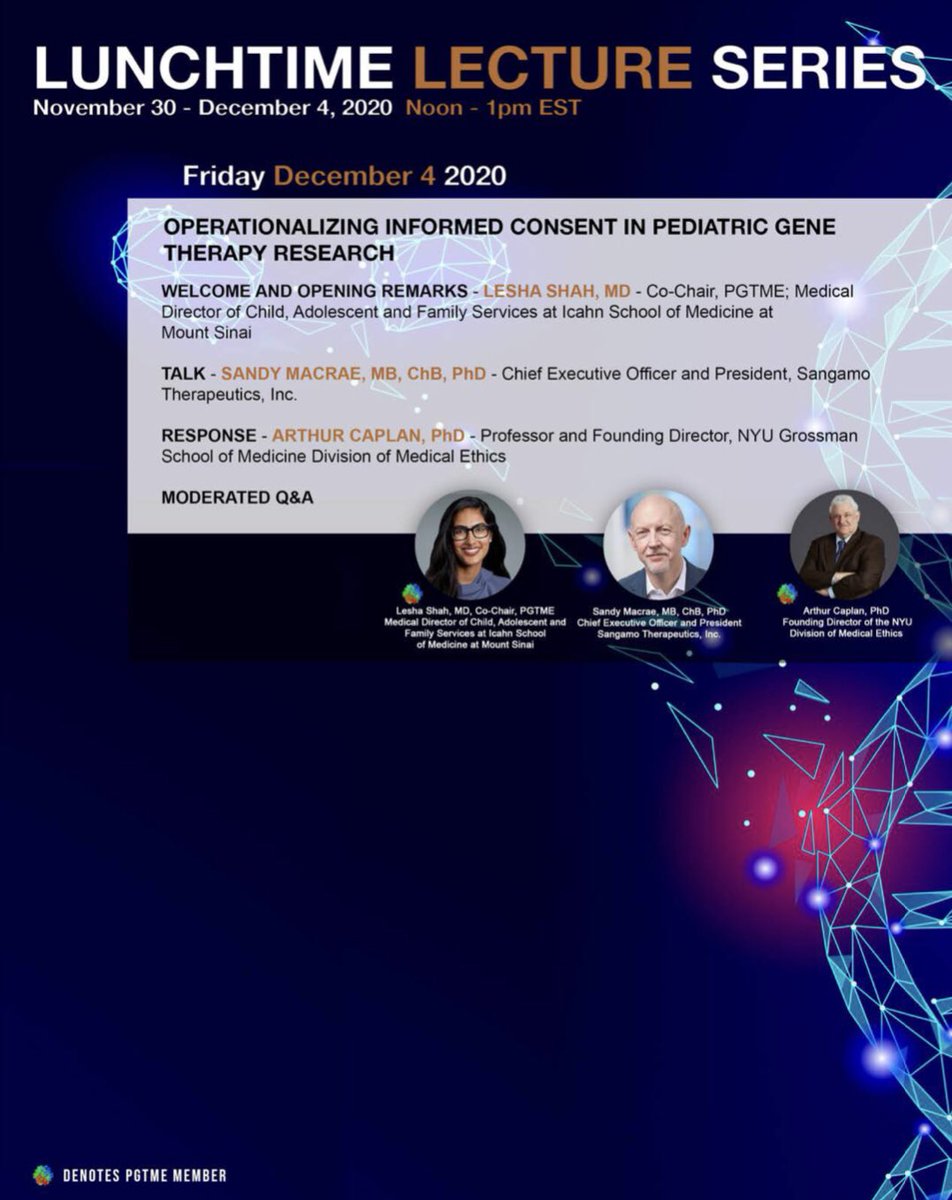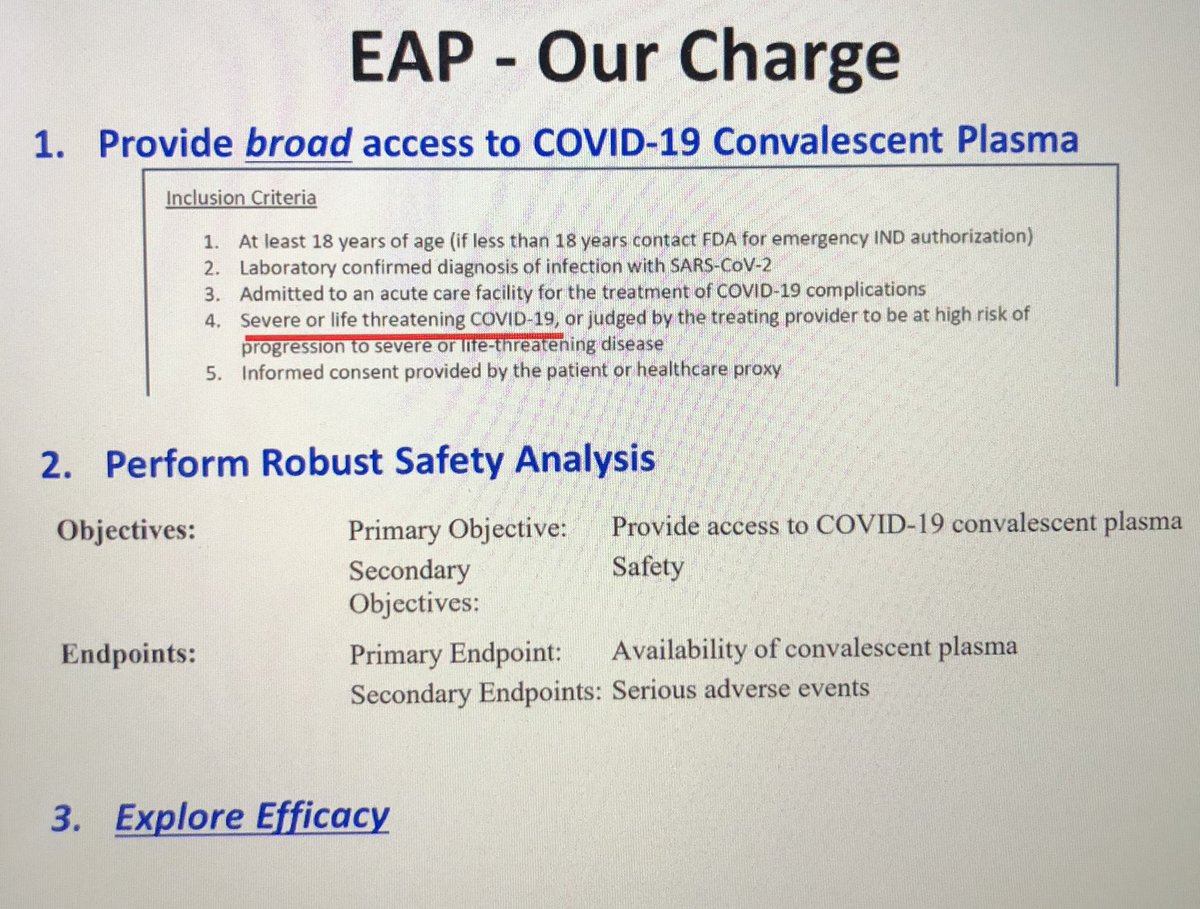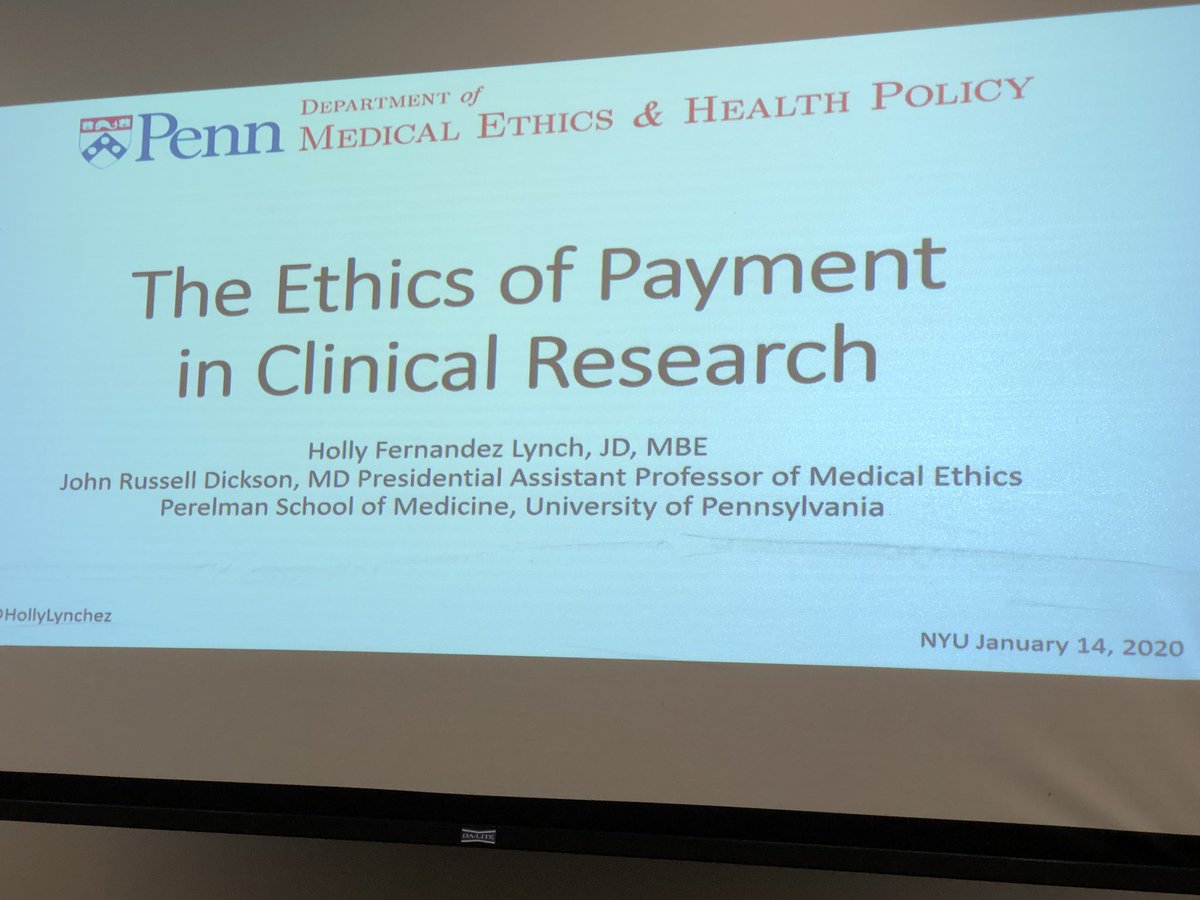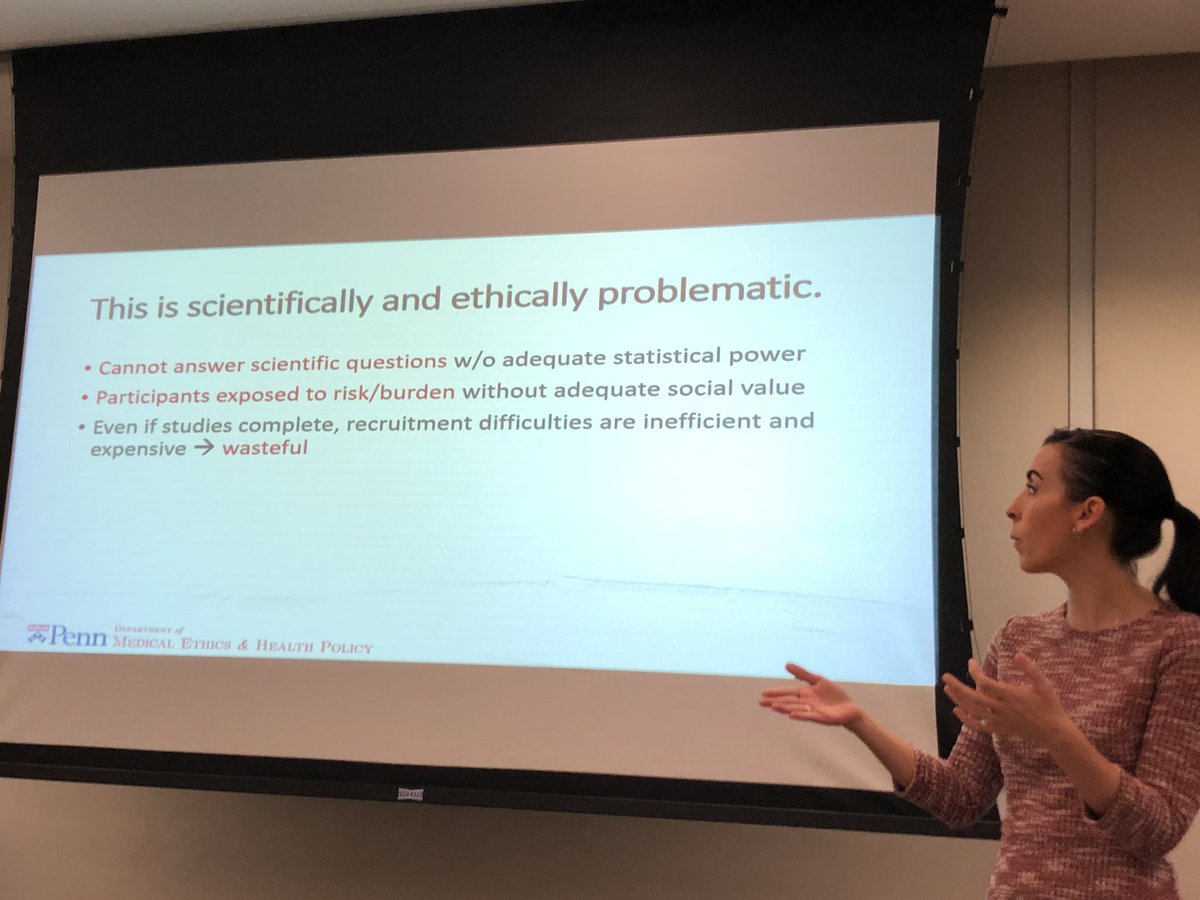
Join #PGTME’s free lunchtime lecture series on ethical issues in pediatric gene therapy clinical trials eventbrite.com/o/pediatric-ge… 

• • •
Missing some Tweet in this thread? You can try to
force a refresh










